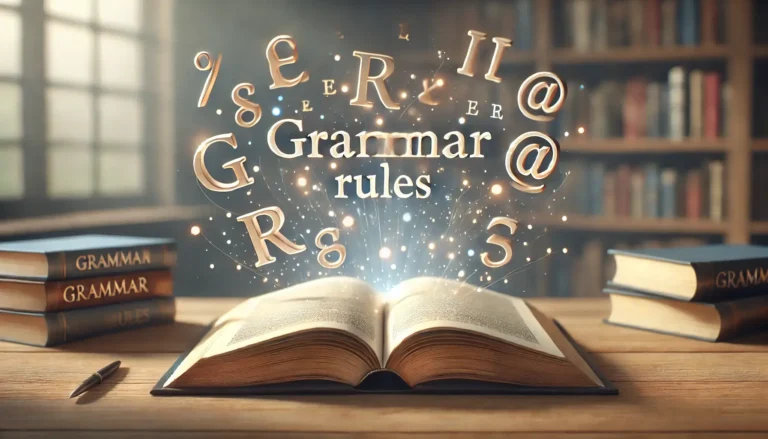The importance of linking words cannot be understated. Linking words are like the glue that holds ideas together in writing or speaking. They connect your thoughts and make your sentences flow smoothly, helping your readers understand the relationships between your ideas.
They play an important role in many areas of grammar, such as expressing reasons, showing causes, using conditional sentences, and more.
In this article, we’ll explore the importance of linking words in different grammar or structure topics, and we’ll explain them in simple ways with examples to help you understand better.
Shop laptop & school bags
1. Reason
One way to look at the importance of linking words is that they are often used to explain why something happens. They help you show the reason for an action or event. Understanding and using these words correctly will make your writing clearer and more logical.
Examples of Linking Words for Reason:
- Because, since, as, due to
Examples in Sentences:
- Because it was raining, we stayed indoors.
(Explanation: The reason we stayed indoors is that it was raining.) - Since it was late, we decided to leave.
(Explanation: The reason for leaving was that it was getting late.)
Deep Explanation: These words make it easy to explain the reason behind an action. Without them, it would be hard to tell why something happened.
For instance, if you just said, “We stayed indoors,” your reader might not know why. But when you add “because it was raining,” you’ve made the reason clear.
More Examples:
- We canceled the picnic due to the bad weather.
- As the movie was boring, we left early.
Illustration: Think of linking words for reason like a signpost that tells your reader why something happened, just like a road sign tells you why the road is blocked or why you need to slow down.
2. Cause
Shop laptop & school bags
Another importance of linking words is that they help you explain what causes something to happen. These words help show the connection between the event and its cause, making it easier to understand the relationship.
Examples of Linking Words for Cause:
- Because of, to cause, due to, to result from
Examples in Sentences:
- The game was postponed because of the rain.
(Explanation: The rain was the cause of the game being postponed.) - The confusion resulted from poor instructions.
(Explanation: The confusion was caused by unclear instructions.)
Deep Explanation: When you explain the cause of something, you’re showing what made it happen.
Linking words for cause allow you to connect the event (what happened) to its cause (why it happened).
They give your writing more depth by explaining why things turned out the way they did.
More Examples:
- His sickness was due to bad hygiene.
- The noise outside caused me to lose focus.
Illustration: Imagine cause linking words like a chain reaction. One thing happens because of another.
For example, if you drop a glass, it breaks because it hit the ground. “Because of the fall” is the cause of the glass breaking.
3. Conditional Sentences
Shop laptop & school bags
Conditional sentences are used to talk about situations that depend on something else happening.
The importance of linking words here is that they show the relationship between the condition (what needs to happen) and the result (what happens if the condition is met).
Examples of Linking Words for Conditional Sentences:
- If, unless, provided that, as long as
Examples in Sentences:
- If you study hard, you will pass the test.
(Explanation: The condition is studying hard. The result is passing the test.) - We will go to the park unless it rains.
(Explanation: The condition is rain. If it rains, we won’t go.)
Deep Explanation: Linking words in conditional sentences show the relationship between two things.
They help you explain what will happen if something else occurs. In other words, one thing depends on another happening. Without these words, it’s hard to express possibilities.
More Examples:
- Provided that you follow the rules, you can join the game.
- As long as you finish your homework, you can watch TV.
Illustration: Conditional sentences are like “if-then” statements in real life. For example, “If it’s sunny tomorrow, then we will have a picnic.”
The linking word “if” helps you understand that the picnic depends on the weather.
4. Inversions
Shop laptop & school bags
Inversions change the usual word order in a sentence, often for emphasis or formal writing. We can see the importance of linking words because they help you make this change smoothly and clearly.
Examples of Linking Words for Inversions:
- Not only… but also, never, rarely
Examples in Sentences:
- Not only did she win the race, but also she broke the record.
(Explanation: This sentence emphasizes that two amazing things happened — she won and broke a record.) - Never have I seen such a beautiful sight.
(Explanation: The inversion emphasizes the speaker’s surprise at the beauty.)
Deep Explanation: Inversions often make sentences more formal or dramatic. The linking words guide your reader through the sentence, especially when the word order is different from what they expect.
More Examples:
- Rarely do we see such dedication in young athletes.
- Not only is he smart, but also kind.
Illustration: Imagine inversions as flipping a coin. You usually expect one side, but inversions show the other side first, making the sentence more interesting or surprising.
Linking words help the reader follow this unusual order.
5. Unreal Past
Shop laptop & school bags
The unreal past talks about things that didn’t actually happen but are imagined or wished for. In this types of language use, we can see the importance of linking words. Linking words help make it clear that you’re talking about something unreal or hypothetical.
Examples of Linking Words for Unreal Past:
- If only, I wish, as if, as though
Examples in Sentences:
- If only I had studied harder, I would have passed the exam.
(Explanation: The speaker regrets not studying harder, and the sentence shows an imagined past.) - She acts as if she knows everything.
(Explanation: This sentence describes a situation that is not real — she doesn’t actually know everything.)
Deep Explanation: Linking words in unreal past sentences help you show that you’re talking about imaginary situations or wishes.
These words are important for expressing regret, wishes, or hypothetical events.
More Examples:
- I wish I had more time to play video games.
- He talks as though he’s the boss, but he isn’t.
Illustration: Unreal past sentences are like daydreams — they describe things that didn’t happen but are imagined.
The linking words make it clear to the reader that you’re talking about an unreal situation.
6. Comparison
Shop laptop & school bags
Linking words for comparison help you show how two or more things are alike or different. They are important when you want to analyze similarities or differences.
Examples of Linking Words for Comparison:
- Like, similarly, just as, in the same way
Examples in Sentences:
- Her new dress is similar to her old one.
(Explanation: The sentence shows that the two dresses are alike.) - Similarly, both brothers are good at sports.
(Explanation: This sentence compares the two brothers, showing they share a skill.)
Deep Explanation: When you compare things, linking words help you explain how they are alike or different. They are like bridges that connect two ideas and show their relationship.
More Examples:
- This painting is just as beautiful as the other one.
- In the same way that dogs are loyal, cats can also be affectionate.
Illustration: Think of comparison linking words like a scale, where you weigh two things side by side to see how they compare.
The linking words help the reader understand which things are being compared.
7. Result
Shop laptop & school bags
Linking words for result help you show the outcome of an action. They make it clear what happens as a consequence of something else.
Examples of Linking Words for Result:
- So, therefore, thus, as a result
Examples in Sentences:
- The weather was bad, so the game was canceled.
(Explanation: The result of the bad weather is that the game was canceled.) - He didn’t study, as a result, he failed the test.
(Explanation: The result of not studying is failing the test.)
Deep Explanation: These words show what happens because of something else.
They make it easy to explain the connection between an action and its result, helping the reader understand the cause-and-effect relationship.
More Examples:
- She practiced every day; therefore, she improved quickly.
- The train was delayed, thus we arrived late.
Illustration: Think of linking words for result like a domino effect. One action (like knocking over the first domino) causes a chain reaction, leading to a result.
Linking words show this chain of events.
Conclusion on the Importance of Linking Words
Shop laptop & school bags
Linking words are important in many areas of grammar because they connect ideas and make your sentences clearer.
Whether you’re explaining a reason, showing a cause, or comparing two things, linking words help you communicate more effectively.
By using linking words, your writing will become more organized, and your readers will be able to follow your ideas more easily.
Practice using these linking words in your writing, and you’ll see how much they can improve your ability to express your thoughts clearly and logically!







